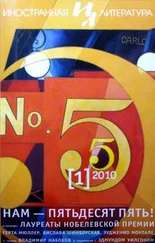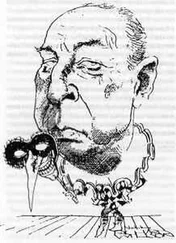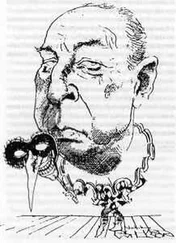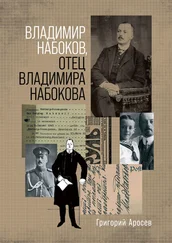Владимир Набоков - Vladimir Nabokov Pnin
Здесь есть возможность читать онлайн «Владимир Набоков - Vladimir Nabokov Pnin» весь текст электронной книги совершенно бесплатно (целиком полную версию без сокращений). В некоторых случаях можно слушать аудио, скачать через торрент в формате fb2 и присутствует краткое содержание. Жанр: Классическая проза, на английском языке. Описание произведения, (предисловие) а так же отзывы посетителей доступны на портале библиотеки ЛибКат.
- Название:Vladimir Nabokov Pnin
- Автор:
- Жанр:
- Год:неизвестен
- ISBN:нет данных
- Рейтинг книги:4 / 5. Голосов: 2
-
Избранное:Добавить в избранное
- Отзывы:
-
Ваша оценка:
- 80
- 1
- 2
- 3
- 4
- 5
Vladimir Nabokov Pnin: краткое содержание, описание и аннотация
Предлагаем к чтению аннотацию, описание, краткое содержание или предисловие (зависит от того, что написал сам автор книги «Vladimir Nabokov Pnin»). Если вы не нашли необходимую информацию о книге — напишите в комментариях, мы постараемся отыскать её.
Vladimir Nabokov Pnin — читать онлайн бесплатно полную книгу (весь текст) целиком
Ниже представлен текст книги, разбитый по страницам. Система сохранения места последней прочитанной страницы, позволяет с удобством читать онлайн бесплатно книгу «Vladimir Nabokov Pnin», без необходимости каждый раз заново искать на чём Вы остановились. Поставьте закладку, и сможете в любой момент перейти на страницу, на которой закончили чтение.
Интервал:
Закладка:
2
He was now fourteen but looked two or three years older--not because of his lanky height, close on six feet, but because of a casual ease of demean our, an expression of amiable aloofness about his plain but clean-cut features, and a complete lack of clumsiness or constraint which, far from precluding modesty and reserve, lent a sunny something to his shyness and a detached blandness to his quiet ways. Under his left eye a brown mole almost the size of a cent punctuated the pallor of his cheek. I do not think he loved anybody.
In his attitude toward his mother, passionate childhood affection had long since been replaced by tender condescension, and all he permitted himself was an inward sigh of amused submission to fate when, in her fluent and flashy New York English, with brash metallic nasalities and soft lapses into furry Russianisms, she regaled strangers in his presence with stories that he had heard countless times and that were either over-embroidered or untrue. It was more trying when among such strangers Dr Eric Wind, a completely humourless pedant who believed that his English (acquired in a German high school) was impeccably pure, would mouth a stale facetious phrase, saying' the pond' for the ocean, with the confidential and arch air of one who makes his audience the precious gift of a fruity colloquialism. Both parents, in their capacity of psychotherapists, did their best to impersonate Laius and Jocasta, but the boy proved to be a very mediocre little Oedipus. In order not to complicate the modish triangle of Freudian romance (father, mother, child), Liza's first husband had never been mentioned. Only when the Wind marriage started to disintegrate, about the time that Victor was enrolled at St Bart's, Liza informed him that she had been Mrs Pnin before she left Europe. She told him that this former husband of hers had migrated to America too--that in fact he would soon see Victor; and since everything Liza alluded to (opening wide her radiant black-lashed blue eyes) invariably took on a veneer of mystery and glamour, the figure of the great Timofey Pnin, scholar and gentleman, teaching a practically dead language at the famous Waindell College some three hundred miles north-west of St Bart's, acquired in Victor's hospitable mind a curious charm, a family resemblance to those Bulgarian kings or Mediterranean princes who used to be world-famous experts in butterflies or sea shells. He therefore experienced pleasure when Professor Pnin entered into a staid and decorous correspondence with him; a first letter, couched in beautiful French but very indifferently typed, was followed by a picture postcard representing the Grey Squirrel. The card belonged to an educational series depicting Our Mammals and Birds; Pnin had acquired the whole series specially for he purpose of this correspondence. Victor was glad to earn that' squirrel' came from a Greek word which meant shadow-tail'. Pnin invited Victor to visit him during the next vacation and informed the boy that he would meet um at the Waindell bus station. 'To be recognized,' he wrote, in English, 'I will appear in dark spectacles and hold a black brief-case with my monogram in silver.'
3
Both Eric and Liza Wind were morbidly concerned with heredity, and instead of delighting in Victor's artistic genius, they used to worry gloomily about its genetic cause. Art and science had been represented rather vividly in the ancestral past. Should one trace Victor's passion for pigments back to Hans Andersen (no relation to the bedside Dane), who had been a stained-glass artist in Lьbeck before losing his mind (and believing himself to be a cathedral) soon after his beloved daughter married a grey-haired Hamburg jeweller, author of a monograph on sapphires, and Eric's maternal grandfather? Or was Victor's almost pathological precision of pencil and pen a by-product of Bogolepov's science? For Victor's mother's great-grandfather, the seventh son of a country pope, had been no other than that singular genius, Feofilakt Bogolepov, whose only rival for the title of greatest Russian mathematician was Nikolay Lobachevski. One wonders.
Genius is non-conformity. At two, Victor did not make little spiral scribbles to express buttons or port-holes, as a million tots do, why not you? Lovingly he made his circles perfectly round and perfectly closed. A three-year-old child, when asked to copy a square, shapes one recognizable corner and then is content to render the rest of the outline as wavy or circular; but Victor at three not only copied the researcher's (Dr Liza Wind's) far from ideal square with contemptuous accuracy but added a smaller one beside the copy. He never went through that initial stage of graphic activity when infants draw Kopffьsslers (tadpole people), or humpty dumpties with L-like legs, and arms ending in rake prongs; in fact, he avoided the human form altogether and when pressed by Papa (Dr Eric Wind) to draw Mama (Dr Liza Wind), responded with a lovely undulation, which he said was her shadow on the new refrigerator. At four, he evolved an individual stipple. At five, he began to draw objects in perspective--a side wall nicely foreshortened, a tree dwarfed by distance, one object half masking another. And at six, Victor already distinguished what so many adults never learn to see--the colours of shadows, the difference in tint between the shadow of an orange and that of a plum or of an avocado pear.
To the Winds, Victor was a problem child insofar as he refused to be one. From the Wind point of view, every male child had an ardent desire to castrate his father and a nostalgic urge to re-enter his mother's body. But Victor did not reveal any behaviour disorder, did not pick his nose, did not suck his thumb, was not even a nail-biter. Dr Wind, with the object of eliminating what he, a radiophile, termed 'the static of personal relationship', had his impregnable child tested psychometrically at the Institute by a couple of outsiders, young Dr Stern and his smiling wife (I am Louis and this is Christina). But the results were either monstrous or nil: the seven-year-old subject scored on the so-called Godunov Drawing-of-an-Animal Test a sensational mental age of seventeen, but on being given a Fairview Adult Test promptly sank to the mentality of a two-year-old. How much care, skill, inventiveness have gone to devise those marvellous techniques! What a shame that certain patients refuse to cooperate! There is, for instance, the Kent-Rosanoff Absolutely Free Association Test, in which little Joe or Jane is asked to respond to a Stimulus Word, such as table, duck, music, sickness, thickness, low, deep, long, happiness, fruit, mother, mushroom. There is the charming Biиvre Interest-Attitude Game (a blessing on rainy afternoons), in which little Sam or Ruby is asked to put a little mark in front of the things about which he or she feels sort of fearful, such as dying, falling, dreaming, cyclones, funerals, father, night, operation, bedroom, bathroom, converge, and so forth; there is the Augusta Angst Abstract Test in which the little one (das Kleine) is made to express a list of terms ('groaning', 'pleasure', 'darkness ') by means of unlifted lines. And there is, of course, the Doll Play, in which Patrick or Patricia is given two identical rubber dolls and a cute little bit of clay which Pat must fix on one of them before he or she starts playing, and oh the lovely doll house, with so many rooms and lots of quaint miniature objects, including a chamber pot no bigger than a cupule, and a medicine chest, and a poker, and a double bed, and even a pair of teeny-weeny rubber gloves in the kitchen, and you may be as mean as you like and do anything you want to Papa doll if you think he is beating Mama doll when they put out the lights in the bedroom. But bad Victor would not play with Lou and Tina, ignored the dolls, struck out all the listed words (which was against the rules), and made drawings that had no subhuman significance whatever.
Читать дальшеИнтервал:
Закладка:
Похожие книги на «Vladimir Nabokov Pnin»
Представляем Вашему вниманию похожие книги на «Vladimir Nabokov Pnin» списком для выбора. Мы отобрали схожую по названию и смыслу литературу в надежде предоставить читателям больше вариантов отыскать новые, интересные, ещё непрочитанные произведения.
Обсуждение, отзывы о книге «Vladimir Nabokov Pnin» и просто собственные мнения читателей. Оставьте ваши комментарии, напишите, что Вы думаете о произведении, его смысле или главных героях. Укажите что конкретно понравилось, а что нет, и почему Вы так считаете.










